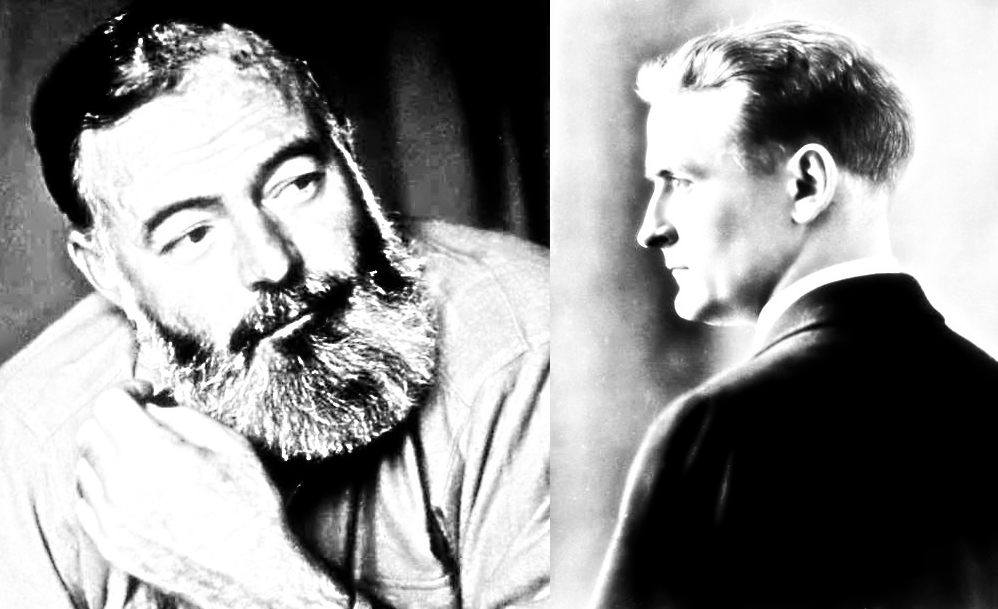Tales of exploration, violence, and humanity’s struggle against nature permeate Jack London’s writing. In a past post, we discussed a fantastic story by the author, but, today, we are going to look at London’s life and times to glean some of the significance of his upbringing, which, hopefully, will help us better understand how his experiences impacted his work as a vivid storyteller and weaver of adventures.
Early years
Jack London was born John Griffith Chaney in San Francisco, California, on January 12th, 1876. London never really knew his father, who left the family when London was young. His mother married a Civil War veteran, and they fell into a working-class life. When London was old enough to work, he ran a variety of manual labor jobs, from shoveling coal to working on ships.
He also spent his youth stealing oysters on his own sloop ship and riding a freight train around the United States as a hobo. As it was the turn of the century, financial ruin and economic disparity plagued many Americans, so London also spent time in Charles T. Kelly’s industrial army—a “protest” army—which was born of the financial strife in the late 1800s.
“London saw depression conditions, was jailed for vagrancy, and in 1894 became a militant socialist” (Britannica).
His early success winning a writing contest after a rather scary adventure on the ocean proved to be a catalyst for the young London. At the behest of his mother, he wrote about his experiences in “Story of a Typhoon of the Coast of China.”
London stated of writing his first victory while still working aggressively as a manual laborer:
“Very tired and sleepy and knowing I had to be up at 5:30, I began the article at midnight and worked straight on until I had written 2,000 words, the limit of the article, but with my idea only half worked out. I continued adding another 2,000 words before I had finished, and the third night I spent in cutting out the excess, so as to bring the article within the conditions of the contest. The first prize came to me, and my success seriously turned my thoughts to writing, but my blood was still too hot for a settled routine” (The New York Times).
He would eventually take this one-off success more seriously and dedicate himself to the craft.
Life as a writer
Libraries, as they often are for budding writers, became a haven for the young London, who took refuge amongst the volumes of action, adventure, and philosophy. After graduating an accelerated version of high school, London attended the University of California; however, he quit after a year due to a “lack of money or means to support himself.” He then departed to pan for gold in the Klondikes (which would inspire his short story “To Build a fire” among others). After that venture proved to be a bust, London set about taking writing seriously.
“By 1899, he had honed his craft and major magazines began snapping up his vigorous stories. When it came to evoking elemental sensations, he was a literary maven” (Smithsonian).
London published his first book in 1900, The Son of the Wolf. This novel was followed by The God of His Fathers (1901), A Daughter of the Snows (1902), The Children of the Frost (1902), and The Cruise of the Dazzler (1902). Of course, being a prolific author meant that London would continue churning out novel after novel, and story after story for many years.
London died of an apparent accidental overdose of morphine on November 22, 1916, at his ranch home shortly before his 41st birthday.
Works Cited
Brandt, Kenneth. “The Short, Frantic, Rags-to-Riches Life of Jack London.” Smithsonian. Nov. 22, 2016. Web.
“Biography: Jack London.” Biography.com. A&E Television Network. April 2, 2014. Web.
“Jack London.” Famous Authors.org. 2020. Web.
“Jack London: American Author.” Britannica. Jan. 8, 2022. Web.
The New York Times. “Jack London Dies Suddenly on Ranch. November 23, 1916.







